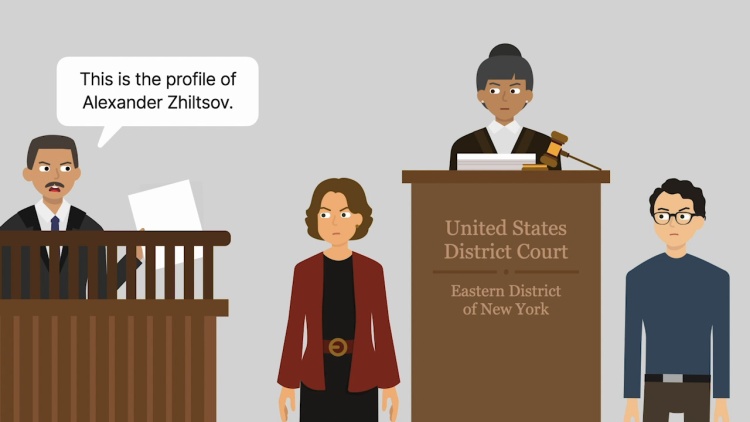United States v. Vayner
United States Court of Appeals for the Second Circuit
769 F.3d 125 (2014)
- Written by Abby Roughton, JD
Facts
Aliaksandr Zhyltsou and Semyon Vayner (defendants) were charged with crimes relating to illegally transferring a false identification document. Vayner pleaded guilty, but the case against Zhyltsou went to trial. At trial, the United States (plaintiff) presented testimony from Vladyslav Timku, a Ukrainian citizen and cooperating witness. Timku testified that he and Zhyltsou had both worked for Martex International and the Cyber Heaven internet café. In 2009, Timku asked Zhyltsou to create a fake birth certificate showing Timku as the father of a fake baby. Timku wanted the birth certificate so he could avoid mandatory military service in Ukraine, as the country allows the parents of young children to defer their service. Timku testified that Zhyltsou sent him the fake birth certificate from the email address azmadeuz@gmail.com. Other witnesses confirmed aspects of Timku’s testimony as the trial progressed, but there was no evidence besides Timku’s testimony that connected Zhyltsou with the azmadeuz address. Then, just before the prosecution rested, the government sought to introduce a printout from VK.com, a Russian social-media website, which showed the profile of “Alexander Zhiltsov.” Zhyltsou objected, claiming that the printout had not been properly authenticated as Zhyltsou’s profile page. The court overruled the objection. A State Department special agent told the jury that “Alexander Zhiltsov” is an alternative spelling of Aliaksandr Zhyltsou. The agent also noted that the profile contained Zhyltzou’s picture, said that “Zhiltsov” had worked at Martex and Cyber Heaven, and listed a Skype address of “Azmadeuz.” The agent admitted that he had never used VK.com except to view the “Zhiltsov” profile and that he did not know whether VK.com required identity verification to create a profile. Furthermore, the agent never attempted to show that Zhyltsou was the author of the profile. Nevertheless, the prosecution asserted that the Azmadeuz Skype address in the profile was proof that the azmadeuz email address belonged to Zhyltsou. The jury convicted Zhyltsou, and he appealed to the United States Court of Appeals for the Second Circuit.
Rule of Law
Issue
Holding and Reasoning (Livingston, J.)
What to do next…
Here's why 908,000 law students have relied on our case briefs:
- Written by law professors and practitioners, not other law students. 47,100 briefs, keyed to 997 casebooks. Top-notch customer support.
- The right amount of information, includes the facts, issues, rule of law, holding and reasoning, and any concurrences and dissents.
- Access in your classes, works on your mobile and tablet. Massive library of related video lessons and high quality multiple-choice questions.
- Easy to use, uniform format for every case brief. Written in plain English, not in legalese. Our briefs summarize and simplify; they don’t just repeat the court’s language.





